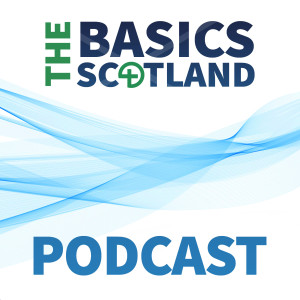
Our own Dave Strachan become the interviewee and discusses suspension trauma
Top 3 tips
1 Suspension trauma happens quickly so be aware!
2 We, the rescuers, are potentially the cause of some of this so in an MRT or technical rescue think about patient position and getting patients to move their limbs where possible
3 Look at the data! Understanding of this condition is changing rapidly as more research is carried out.
Resources and links
https://www.wemjournal.org/action/showPdf?pii=S1080-6032%2820%2930070-3
https://www.wemjournal.org/action/showPdf?pii=S1080-6032%2819%2930164-4
https://www.ncbi.nlm.nih.gov/pmc/articles/PMC7346344/pdf/cureus-0012-00000008514.pdf
https://www.ncbi.nlm.nih.gov/pmc/articles/PMC6602116/pdf/ham.2018.0089.pdf
https://www.ncbi.nlm.nih.gov/pmc/articles/PMC2658225/pdf/237.pdf
Biography:
Dave started working in pre hospital care in 2006 as an event medic and member of Tayside Mountain Rescue. When he finally graduated from Dundee in 2014 he had spent just enough of the intervening years not having fun in the hills to actually qualify as a Doctor. Currently a Captain in Royal Army Medical Corps, he now holds diplomas in Leadership, the Management of Conflict and Catastrophe and Immediate Medical Care. He has climbed and led expeditions on 5 continents and spent most of the past few years deployed on operational tours and military exercises around the world.
At home in Pitlochry, Dave can be found responding for BASICS, playing ‘hide and seek’ with the rescue team or running (slowly) around the hills looking for things to climb.
More Episodes
 2022-06-20
2022-06-20
 2.6k
2.6k
 2022-06-06
2022-06-06
 1.3k
1.3k
 2022-05-16
2022-05-16
 1.2k
1.2k
 2022-05-10
2022-05-10
 1.1k
1.1k
 2022-05-02
2022-05-02
 2.4k
2.4k
 2022-04-25
2022-04-25
 1.1k
1.1k
 2022-04-18
2022-04-18
 837
837
 2022-04-11
2022-04-11
 951
951
 2022-04-04
2022-04-04
 845
845
 2022-03-30
2022-03-30
 947
947
 2022-03-21
2022-03-21
 904
904
 2022-03-14
2022-03-14
 1.1k
1.1k
 2022-03-07
2022-03-07
 800
800
 2022-02-21
2022-02-21
 851
851
 2022-02-14
2022-02-14
 1.1k
1.1k
Create your
podcast in
minutes
- Full-featured podcast site
- Unlimited storage and bandwidth
- Comprehensive podcast stats
- Distribute to Apple Podcasts, Spotify, and more
- Make money with your podcast
It is Free
- Privacy Policy
- Cookie Policy
- Terms of Use
- Consent Preferences
- Copyright © 2015-2024 Podbean.com





